Penal Violence in Spaces of Rural Precarity (South Africa) | Gail Super
When and Where
Speakers
Description
Join us for this seminar in the 2024-2025 Seminar Series presented by the CrimSL Research Cluster for the Study of Racism and Inequality.
This is a free event, however, registration is required.
Prior to the seminar, join us for a light lunch from noon to 12:30 pm in the Centre Lounge. Please indicate your lunch RSVP for catering purposes when you register.
Abstract
This paper examines the role of accusation in producing regimes of 'truth' and 'justice' in a deeply rural area of the former Transkei homeland (bantustan), and in an impoverished urban Black township in Cape Town's southern suburbs. It is based on two case studies. In the latter a crowd of people metes out lethal collective violence onto the bodies of two men suspected of perpetrating the rape and murder of a 13 year old school boy. Various interlocutors refer to the incident as being an instance of 'community' or 'mob' justice. In the former, the khomkulu, a traditional customary law forum consisting of the Nkosi (headwoman) and her councilors, presides over the public hearing of a man accused of stealing a cow. After eight hours he is found guilty and ordered to make amends. This entails an apology (concretized through the payment of 8000 ZAR (600$)), returning the cow, and donating an additional cow to the community. Despite the fact that both case studies play out in ostensibly non-state spaces - in the township's public square, and on a grassy green hilltop, I argue that the forms of justice that emerge are both prefigured by, and prefigurative of, official (State) law and its criminal (in)justice system. In making this argument the paper examines the role of violence (or the threat thereof) in the production of locally situated forms of truth and justice, and the relationship between penal violence and accusation.
About the speaker
Gail Super is Associate Professor, Sociology (Mississauga). Her research interests include legal and criminological theory, the sociology of punishment and its philosophical justifications, vigilantism, legal pluralism, and critical bordering studies, including working with an Indigenous-led policy research program in Northwest Ontario and extensive empirical research in South Africa.
Accessibility
Please note that our Centre Lounge and CG 265 seminar room are on the second floor of the Canadiana Gallery building, with stair access only as there is no elevator. If you have any access needs or if there are any ways we can support your participation in this session, please email crimsl.communications@utoronto.ca and we will be glad to work with you to make the appropriate arrangements.
Notice of photography and videography
Photography, audio and video recording may occur throughout this event. Therefore, by attending, you hereby authorize the University of Toronto to take your photograph, video and/or record your voice and grant the university all rights to these sounds, still or moving images in any medium for educational, promotional, marketing, advertising or other such purposes that support the mission of the university. If you do not consent to this, please speak with a university representative upon your arrival.
Health & Safety
We are following health and safety measures outlined by the University of Toronto and the Government of Ontario. Should there be changes in protocols related to health and safety of our guests and community, registrants will be advised.


